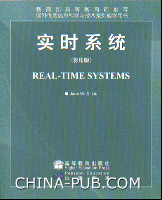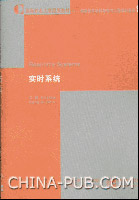
Graduate Course
Spring 2009
Northeastern University
| COURSE INTRODUCTION | ||||||||||||||||||||||||||||||||||||||||
This course is in the required course list for post-graduate students majoring Computer Science at Northeastern Univeristy, China. The objective of this course is to enable course takers to have knowledge on fundamental concepts and techniques in real-time computing. Course takers are supposed to grasp the fundamental concepts of real-time scheduling, Worst-Case Execution Time (WCET) analysis and real-time opearting systems. Course takers should have knowledge on operating systems, data structure and algorithms, and should be skilled in at least one programming language. This course takes 40 credit hours. Course takers should complete four course assignments and pass the final exam independently; students who only take the final exam will not get the credit of this course. |
||||||||||||||||||||||||||||||||||||||||
| COURSE STRUCTURE | ||||||||||||||||||||||||||||||||||||||||
|
||||||||||||||||||||||||||||||||||||||||
| TIME & ROOM | ||||||||||||||||||||||||||||||||||||||||
Week 1 - 8, Monday |
||||||||||||||||||||||||||||||||||||||||
| GRADING SCHEME | ||||||||||||||||||||||||||||||||||||||||
| Class attendance - 40%, Course assignments - 30%, final report or exam - 30% | ||||||||||||||||||||||||||||||||||||||||
| RECOMMENDED BOOKS & USEFUL LINKS | ||||||||||||||||||||||||||||||||||||||||
|
Last updated June 2009. For any questions on the website, please contact the webmaster


